|
"I firmly believe institutions, much like people, must have character." Today's interview is brought to you by Datasource Sports. Datasource Sports is a new tool that lets sports leagues and teams run background checks on their staff and volunteers with the click of a single button. No more keeping people's information on file, you can now email a customized widget link and have your volunteers do everything themselves. All pricing is scalable to fit your budget, and your account and widget are free. Visit www.datasourcecorp.com today and sign up for a quick walk through to start saving your organization time and money today. Hello again AP Readers! I was a little worried that due to work busy-ness today's release would have to be delayed until tomorrow. But through sheer force of will (a quieter than expected morning) I was able to get everything together and out on time! Before you launch into reading this interview with Tim Sas of Duluth FC, I want to recommend that at some point you listen to this excellent podcast interview he did with Flakoglost, now known as Non-League Colorado. You can listen to that by clicking Here. Also, just so you are aware, Tim is a Priest in the Orthodox Christian Church, so there is a religious slant to this interview and the team. I encourage you to read with an open mind, and not make any judgement. Soccer is a universal language, regardless of race or religion. Check it out. Tell me a little about yourself. Who you, where you're from, and what your role is with Duluth FC. Most people that I interact with know me as Father Tim. I'm an Orthodox Christian priest serving a wonderful and active community in downtown Duluth, Minnesota where I live with my wife and our four daughters. I was born in Romania and grew up there until I was a young teenager, then moved briefly to Sweden, ending up in Vancouver, Canada which became home. I came to Minnesota in the late 90s for graduate school and Duluth is our home. How did you come to be a fan of soccer? I've been involved with the beautiful game since I was able to walk. I love the sport in all its aspects and hope to be involved in it at some level for the rest of my life. In addition to playing, I have coached youth for many years and currently I'm the general manager of Duluth FC, a club I founded. What's the story behind the creation of Duluth FC? Duluth FC has a interesting story. Its birth really goes back to a joke between two friends over a tea. A good friend of mine jokingly said that I should start a team and enter the local league. It was a joke that actually began to take roots in conversations with a number of other friends. After thinking and praying over the idea I decided to get this idea going. A priest and father of 4 daughters, in his early 40s has little free time to start a soccer team. After some thought and prayer I decided that if I start a team it would have to be of a character that I can identify with. Essentially, I sent out an email to a group of friends who were footballers and explained to them what I was looking to establish - a football/soccer team with a Christian character. We formed the team and we entered the Duluth Amateur Soccer League, a competitive league in Northeastern Minnesota and Northwestern Wisconsin. That's the 'creation story' so to speak! What prompted the move from the Duluth Amateur Soccer League to the American Premier League and then the National Premier Soccer League? Seems like the team has just been constantly improving to keep moving 'up the pyramid' like this. The move from DASL to APL became a reality by a variety of conversations with friends who operate clubs in different leagues at this competitive amateur level. Of note is Tim Singleton, currently GM of Minnesota TwinStars FC, but at the time he was with FC Fargo. Youssef Darbaki, head coach of MN TwinStars FC, Greg Saliaras of La Crosse Aris FC, and my old coach Ed Badescu of WSA Winnipeg (PDL). More importantly however, I strongly believed that my home city of Duluth was ready for this type of competition. DASL is a competitive league of 10 teams with a history of 45 years of continuos competition. There are a clubs that have been in continuos operation for that length of time in our city. This is no small matter for a small metro area of less than a quarter million people. Additionally, we have 2 very strong D3 college soccer programs (College of St. Scholastica & University of WIsconsin Superior) along with 1 NJCAA program (Lake Superior College) that's quickly becoming very strong also. Lastly, I love this sport and I love my home town and this was another way to showcase the city of Duluth and all it has to offer. Since you've lived in several different countries, what are two or three things you learned that have shaped how you approach running Duluth FC? I've lived in 3 different countries as a young kid and teenager and 2 different countries as an adult. Additionally, I've traveled extensively and everywhere I've been I played or interacted with the soccer world. Honestly, I'm not sure how having lived in different countries shapes how I run the club, but I can tell you that all those experiences shaped who I am as a person and that makes a difference in how I interact with people in all aspects of my life including 'running Duluth FC'! Generally speaking, I operate on the premise that every single person is package of wonderful positive gifts or talents. With that starting point in mind, I thoughtfully and prayerfully approach each person, finding ways to support and encourage those gifts for the health and success of the respective organization or project. As GM of Duluth FC I function the same way, facilitating the involvement of wonderful people for the success of this team representing our city. A different benefit which I credit to my multi-cultural upbringing, is that I firmly believe institutions, much like people, must have character. Too often organizations like sports teams are kept very stale without any distinctiveness because in an effort to appeal to everyone equally the reduce their character to the lowest common denominator. For example, Duluth FC is not just a football/soccer club. Instead, we intentionally developed a local identity and a Christian character. The local identity is expressed in our name and logo. Our logo uses the blue and green from our city flag. It shows off the Arial Lift Bridge and the Enger Tower, which are iconic sites in our city. It even displays 11 stars to show off our history. The city of Duluth was formed by the merger of 11 villages. The great seal of the city also displays 11 small stars for that historical purpose. We also include the fleur-du-lis to show the French heritage of the first European settlers of the city. Lastly, we have a Byzantine cross which identifies us as an organization with a Christian background although it is not a Church ministry. In an effort to live out this Christian character, we donate 10% of our tickets to local charities. Kids get in for free with a donation of non-perishable food items for the local food shelf, and our players serve in the community as part of being players on the club. Our players have different backgrounds and faiths and interests but all participated whole-heatedly in our club in past years and I'm certain this harmony will be enhanced as we grow. Having never been to Duluth, how would you describe your town to an outsider? I have lived in Duluth, Minnesota with my family for the past 12 years. Initially we came here with a 3-year plan. After the first couple of weeks, I wanted to just get into a car and drive away because it was just too small for my experience and liking. However, within a year and half or so, my wife and I both fell in love with this city and its character such that we decided to make it our home. Duluth is a small city of about 100,000 with a total surrounding area of less than a quarter million. However, it has all the cultural dynamism of a large metro area. It has excellent schools from young kids to college. It has a great artistic scene with superb music of all types. Duluth is also a leader in some economic and industry aspects such as small aircraft engineering, high-quality clothing lines, a fantastic medical complex, and even craft breweries and organic restaurants. The natural beauty of the scenery with Lake Superior, mountains, rivers and woods is simply unmatched. It is often referred to as the San Francisco of the Midwest and the Playground of the Midwest. Outdoor activities are ample year-round even if the temperature gets very cold by comparison to the rest of the country. But more importantly, there seems to be a dynamic commonality about the people who live here which is difficult to explain but easy to notice once you are here. There is an incredible drive among-st the people to help each other do well. In the midst of recent recession, for example, Duluth and the surrounding area, has seen exciting growth and improvement. Young professionals and families are moving here by choice. Frankly, anyone who hasn't visited Duluth, must do so. I love this place. Having consciously tried to create an identity of character around the club, how has the community around the team seemed to respond? Actually, I think having a unique identity has been one of the things most appreciated by the community. People want to support things that they can easily love. Our supporters love our city of Duluth and want to see it promoted. By supporting the local food shelves and other non-profits we have gained supporters who consider themselves partners in supporting these organizations who serve our neighbors who may be in difficult needs. What are some of the big differences you've noticed between how soccer is perceived in the states compared to, say, Sweden, or even Romania? Well, this is an expansive topic. Firstly, in Sweden and especially in Romania, football/soccer is truly the King of Sports. By way of comparison, none of the major leagues such as NFL, NHL, MLB, NBA in the US even near the prominence of soccer in Romania. The USA will not be able to catch up with that type of visibility for a very long. But, in my opinion, while this is a major difference, it isn't the important difference. The important differences are (I repeat, this is my opinion) the approach to youth playing the sport and the way the respective federation runs the sport. Firstly, in the US youth who want to get better have to pay a great deal of money to receive very advanced coaching, sometimes too advanced for their age. Youth soccer is also over-structured, though this might be just a symptom emblematic of our society as a whole. We are uncomfortable giving kids freedom to just play. Second, in Sweden and Romania the professional and competitive football clubs are all organized in a functional system of leagues where participation is based on sporting merit. The fact that every community can start its own club and work to advance up an organized ladder of competition based on how they compete is a major benefit for the sport as whole in those respective countries. Our current system doesn't encourage clubs to advance. Nevertheless, I am hopeful that incremental improvements will come about in the US also. Where does Duluth FC typically play it's home games? Our home stadium is the Public Schools Stadium adjacent to Denfeld High School, a beautiful location in the heart of West Duluth. It is easily accessible from the freeway (I-35) and from the main thorough-ways of the city. PSS is an excellent stadium with all possible professional amenities and capabilities. It seats 3,000 spectators and we hope to fill it soon. Our average attendance last year was in the upper-200s with one match crossing the 500 mark. The atmosphere is great and there are many local restaurants within walking distance. Speaking of youth, does Duluth FC do anything right now to help make it easier for kids to play the game? Duluth FC players do not have any expenses in playing for Duluth FC. As part of their contract they take on the charge of giving of their time and energy volunteering with programs serving children in low-income neighborhoods. This is achieved by partnering with local charities and primarily with the Arrowhead Youth Soccer Association. Additionally, most of our players coach youth teams on a weekly basis either as volunteers or for a small stipend. Do you think there any practical steps that could be taken in the lower levels to encourage more thinking along the lines of sporting merit over money? Yes, I'm a firm believer in Sporting Merit for advancement. Truth be told, everything in life needs to find its purpose for existence. That applies to organizations of all types and even to people. Here's an example from my own life. Let's look at a 'church', since that's my closest experience. A church, or any type of religious community, needs to become very efficient and successful at many different aspects of it's daily needs: cleaning facilities and grounds, organizing programs, having good relations in the larger community, and even fundraising and donations. However, a church must always remain focused and grow in it's clearly defined purpose of "worshiping God and serving His people". That must be the heart of a religious community. When a church fails to focus and grow based on that activity, it becomes purposeless. A sports team likewise must advance and grow based on playing the respective sport. When it fails to do so, it becomes purposeless. As for an actual process to implement sporting merit in lower levels of soccer/football.....much longer conversation. I'd love to engage in that type of talk at another time. What kind of changes do you anticipate happening with the clubs move up to the NPSL? We have already started to implement changes back in the winter. We now have a staff of 15 people, and we'll be pushing closer to 20 volunteers working regularly to make things happen. We need to raise more funds through sponsorships and hopefully merchandise and ticket sales. Lastly, but importantly, we need to be ready for an increased level of competition. The dedication of our staff and players makes me feel very confident that we'll compete well on all those fronts. What league and or team do you watch for fun?
Premier League & Bundesliga, but that's primarily because those are available more easily on TV here in North America. Additionally, I seek to watch some matches from the Professional League in Romania. Favorite player, one past, one present. George Hagi, Romanian's famous #10 and Lionel Messi, predictably. Do you have any books, soccer related or otherwise, that you would recommend to the people reading this? Don't get me started on books! I really don't read books on the sport, though I like to read lots of different articles. If I may, I'll just recommend a couple of writers instead: C. S. Lewis and Karl May. Where can people find out more about Duluth FC? www.DuluthFC.com and follow us on facebook, twitter, instagram. Thank you again for your time Tim, I really appreciate it. Remember, if you are enjoying the weekly content coming out on AP you can Follow AP on Twitter, or Like AP on Facebook. And if you want make sure you never miss an interview, and want to read articles before everyone else, click here and sign up for the Newsletter. You'll be the first to know when articles are released and learn about other exciting content down the road. Make sure to spread the word by sharing these interviews, telling friends about the blog, those kind of things. AP can't accomplish the goal of maximum exposure for all levels of the American Soccer Pyramid without YOU. Until next time, Stay Loyal, Support Local. |
Categories
All
PartnersArchives
February 2021
|

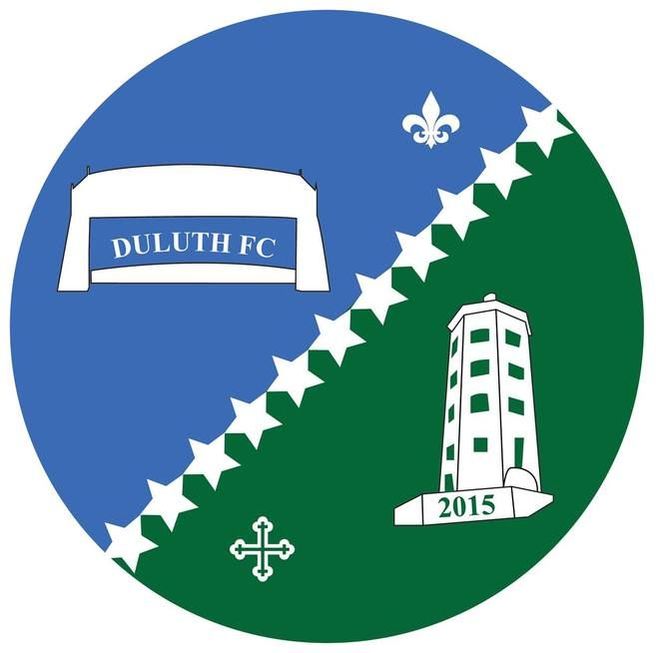
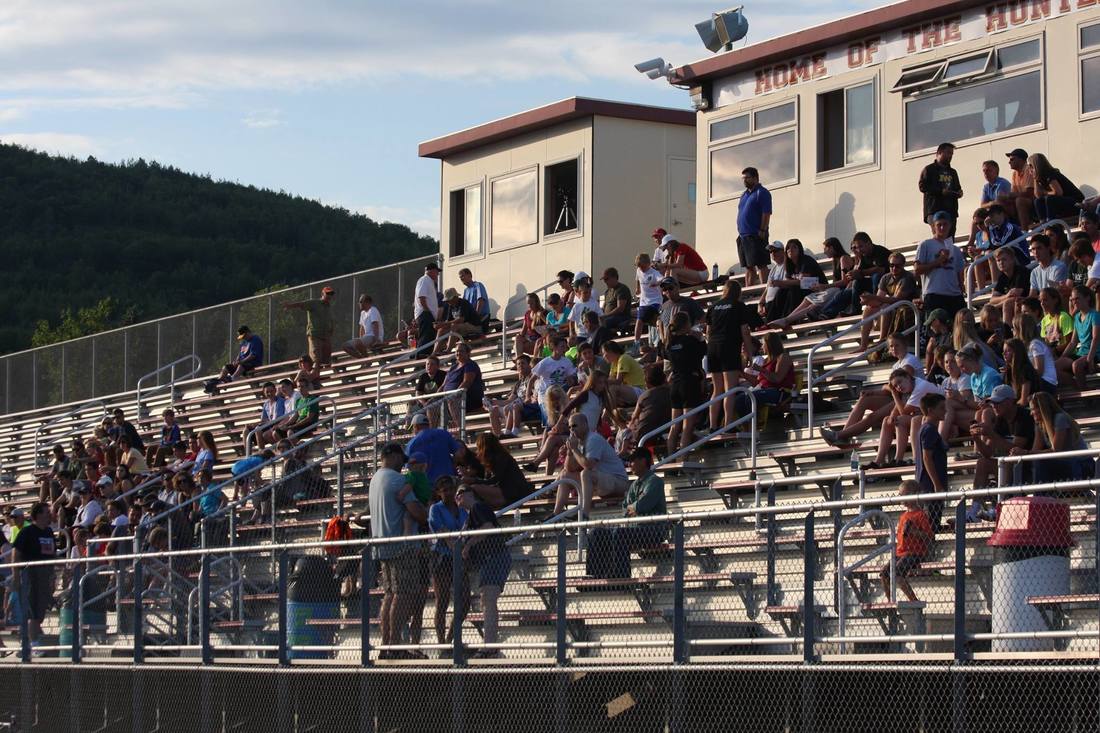
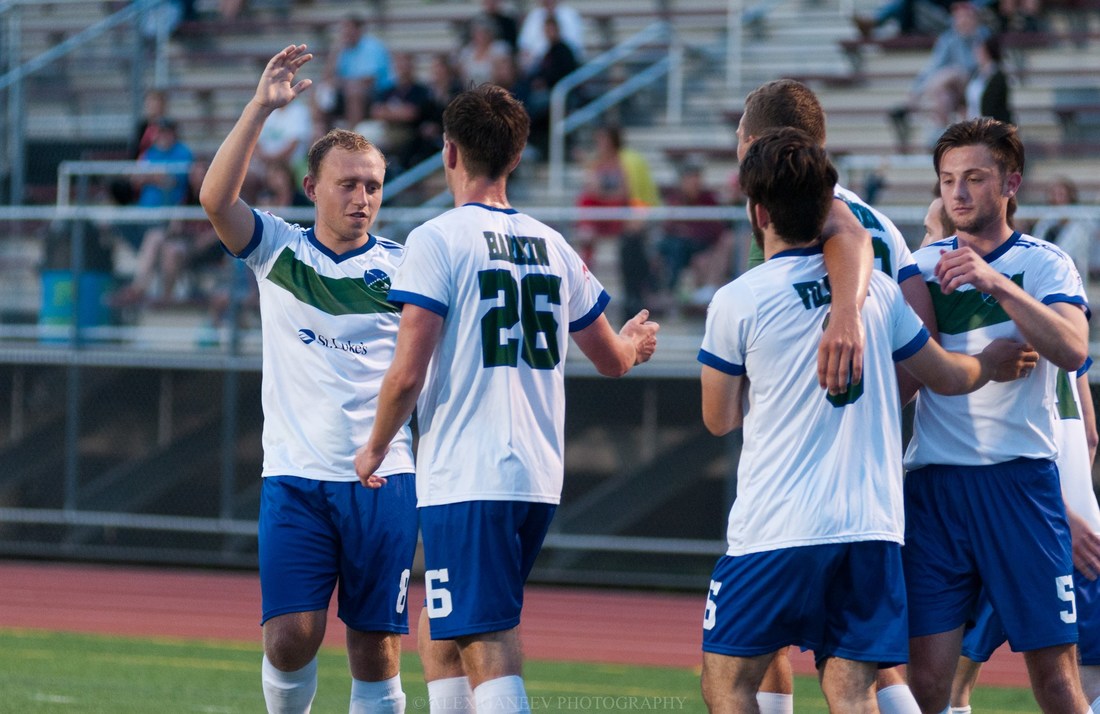
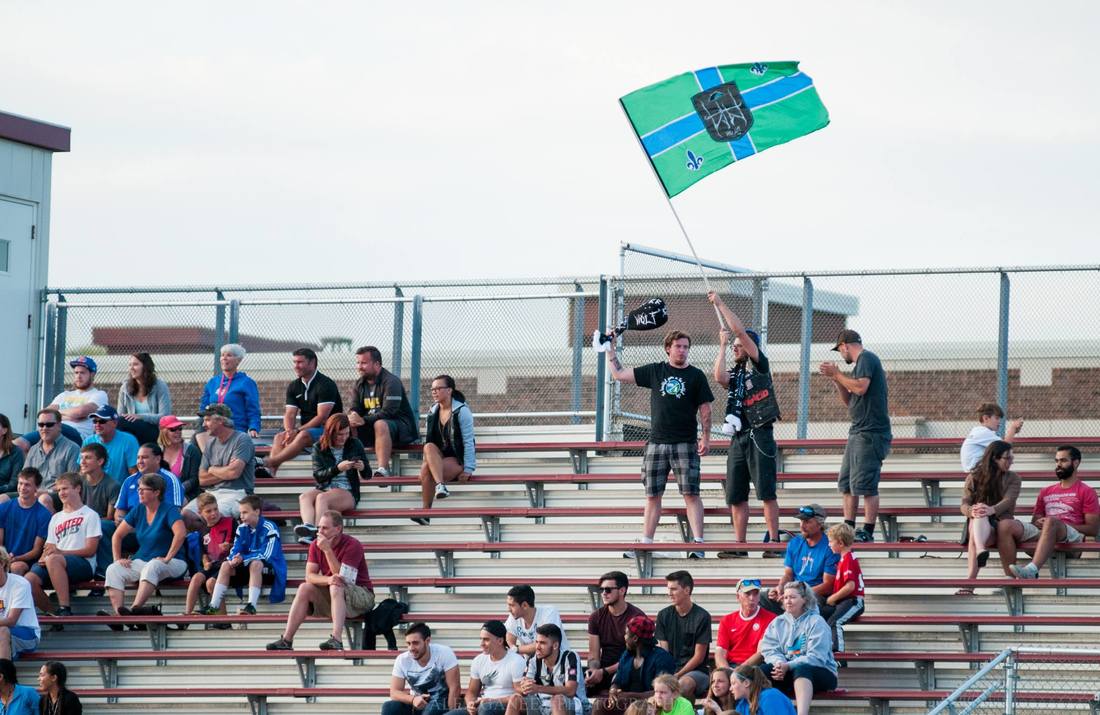
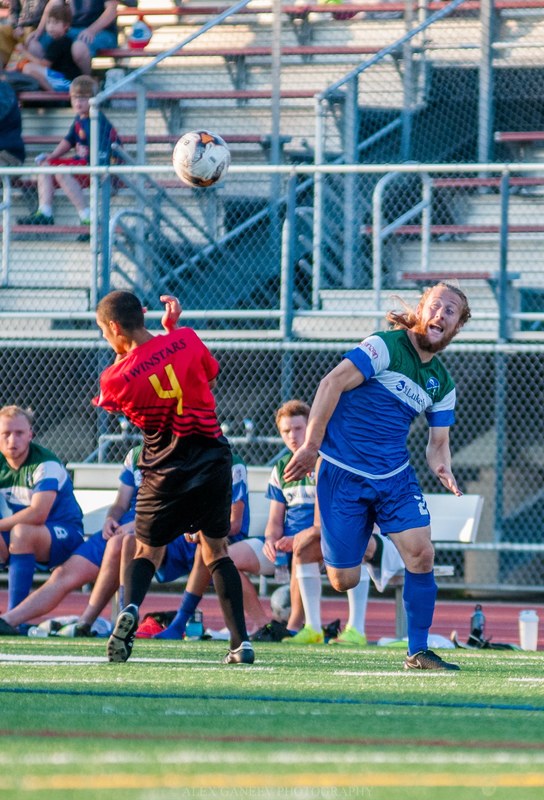
 RSS Feed
RSS Feed
